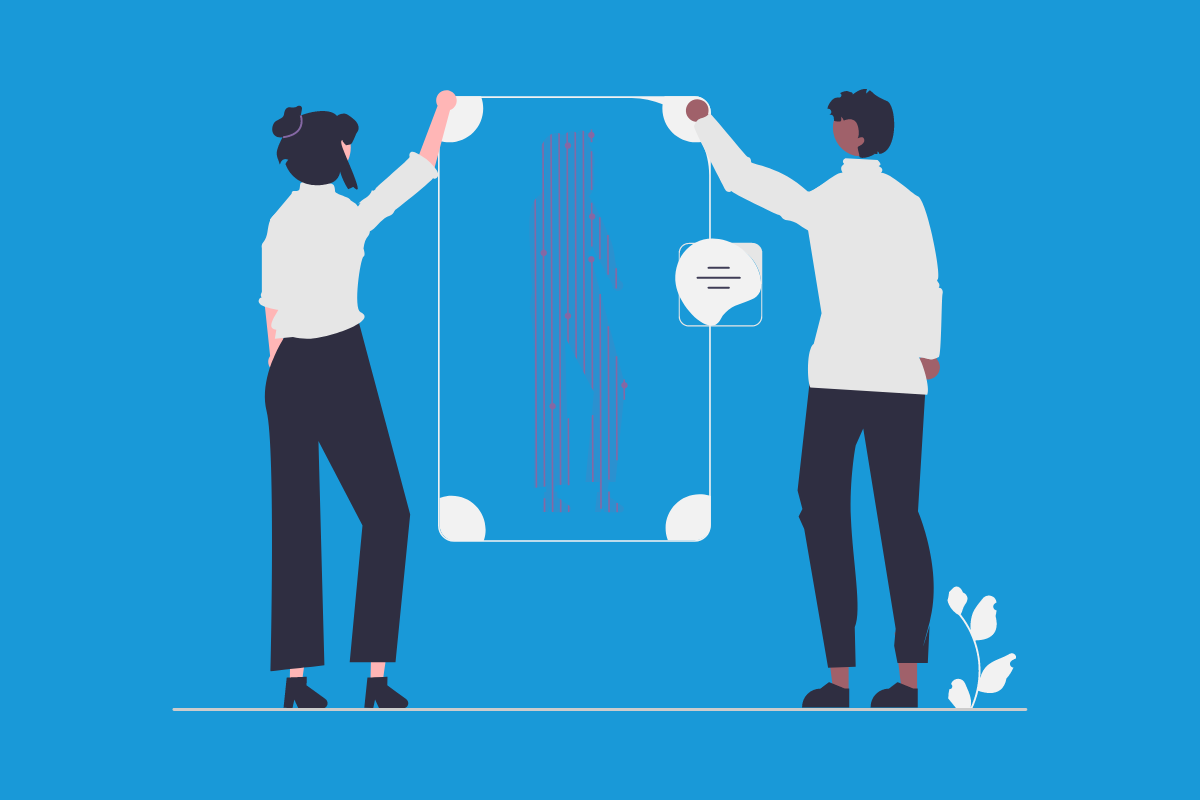Technology is ever evolving. It’s in its nature since its inception to recognise gaps and create solutions. From Charles Babbage’s Difference Engine and Analytical Engine in the early 19th century, which gave rise to the world’s first computer programmer Lady Ada Lovelace (source), to today where almost all of us have complex computing machines in our pockets. Some even wear them on their wrist.
So where can it go from here? The possibilities are endless, and the far-flung future is hard to predict. The capabilities of what we still refer to as a phone was likely not expected by Alexander Graham Bell. But the area of tech that the expertise of Pulsion lies in is software development. So, we asked some of our developers what they foresee in the future of software development.
Francesca Bonini is a senior software engineer who has been with Pulsion for over 5 years, leading multiple development teams in delivering websites and custom software solutions.
Stephen Brown has been with Pulsion for 3.5 years as a software developer working on both the front-end and back-end of projects. Learn more about Stephen in his Meet The Team video.
John McGuire is our graduate artificial intelligence (AI) and machine learning (ML) engineer, working in both front end-end web development and machine learning.
You can find out more about our Pulsion team on our Team page.
Next 1 Year
Likely any changes in software development to come in the next year have already begun. But what do our software engineers predict the important changes might be over the coming year? The development of AI is at the forefront:
“AI based technologies will be more and more involved in day to day development tasks, but hopefully there will be a greater understanding that it can’t be a replacement and the personal experience still is more valuable. Automation will play a bigger part in development and developers will have to write less and less code from scratch: code templates will be more widely used, cloud technologies will also be a bigger part of development, and they will continue to grow and be adopted widely”
– Francesca
“Within the next year, it is likely that we will see further adoption of assistive AI-based software engineering tools such as GitHub co-pilot and AWS code whisperer which attempt to lower the amount of repetitive code done by an engineer.
It is also likely that the number of software engineers globally will continue to grow, as demand for digital and AI solutions continues to increase.”
– John
Instead of AI, Stephen considered the software development landscape as a whole:
“The general need for digital solutions will continue to rise, and with it the need for efficient processes. Locking-down of project outcomes before code is written will start to become more formalised. More solutions will begin to use smaller tools to aid the coding process, with some of these beginning to implement elements of AI-based technology”
– Stephen
Next 5 Years
In five years’ time, the software we are used to today will have improved, with new software emerging throughout the years. Our developers predict a continued growth in the use of AI.
“Certain programming languages will no longer be in-fashion, and several will be more popular. AI solutions will also become much more in-fashion. There will be an increased perception (not necessarily a correct one!) that AI will be able to do “everything” for us. AI will play a more significant role in providing an aid to developers. Approaches towards the management and deployment process of software will become more uniform and formalised.”
– Stephen
“Within 5 years, it is possible that engineers will begin to have the ability to build software using natural language prompts, which could present a massive increase in productivity. Whilst it is not likely that whole applications will be built using just natural language, it is likely that smaller chunks of code will be generated solely from natural language prompts.”
– John
Francesca highlights the use of AI not just in the actual development work, but in the requirements gathering process and testing elements of projects:
“AI will be more involved in the requirements gathering process, hopefully, which is one of the areas that needs the most help in software development. Project testing, which is also very important, will become potentially more automated too.”
– Francesca
Requiment is a software project requirements gathering and management tool that improves the requirements gathering process.
Our developers also highlighted the growing adoption of cloud technologies, Stephen commenting that “Cloud technology will be more increasingly adopted” and Francesca agreeing that there will be “continuous growth and adoption of cloud based technologies”.
Next 10 Years
What will a decade of software development improvement change? AI and cloud technology continue to develop:
“In 10 years, it may be possible that full small applications could be built using descriptive natural language prompts. It also seems increasingly likely that the GPU availability/cost bottleneck in AI development could be partially solved by the advent of quantum computing, meaning that we could see a monumental shift in software development to highly efficient and complex applications that are not feasible today.”
– John
“Automations and AI technologies would have become more consolidated and adopted widely in software development, and there would have been a significant decline in project failures.
[We are] likely to see almost no server based project: all will be delivered from the cloud.”
– Francesca
Stephen also considered the development of AI and how this will affect developers while also considering other areas of software development:
“Code itself will begin to be smaller and neatly-fragmented. AI tools and plugins will be more widely-adopted, allowing developers to write code that is simpler and more readable. More solutions will exist that allow someone with no background in programming to create something clean, elegant and functional. The need, however, for bespoke software that handles more complex requirements will have also grown significantly. There will (rightly) be more women working in software compared to now. AI more generally will continue to skyrocket, but will fuel many debates in ethics. The internet of things may reach its peak.”
– Stephen
Next 25 Years
In the not-too-distant future we might be looking at having quite a different relationship with tech.
Francesca thinks there is a possibility that “something even more powerful than cloud will exist” and that AI could by this time pose a risk to software development:
“People working in software development will use AI for almost all of their tasks, and everything will be automated: the risk of putting too much trust in AI could lead to loss of critical thinking”
– Francesca
John considered how AI will impact the workforce of the future:
“In 25 years, it could be the case that the combination of AI and vastly increased available compute power has led to a much lower amount of traditional software engineering actually being done by human beings, and rather has led to the creation of jobs that we cannot yet accurately predict. A subset of these jobs may be related to managing the models that are writing an ever-growing percentage of the world’s software.”
– John
Further to the changing workforce, Stephen discussed the regulation of AI in the future and formalisation of development:
“Policy, laws and practices around AI will have become very well-defined. AI itself will be heavily and widely integrated into all areas of the development process. Older, less readable, programming languages will be near-extinct. Development aids will be more formalised, making the overall coding experience very approachable.”
– Stephen
Stephen also considered software development within the wider ecological context:
“The onset of the climate crisis will have resulted in the development of numerous new technologies and software systems to combat it. People will be more wary of resource consumption, and will more frequently question the need for everything to have a chip in it.”
– Stephen
Next 100 Years
Perhaps too hard to predict really, in 100 years life might be very different from what we are used to. And with societal change will come different priorities.
“In 100 years, I would predict that a negligible percentage of the worlds software will be written by human beings, and that the unprecedented shift to an AI-based economy has resulted in humans being highly integrated with AI. This could potentially be through extremely advanced and high-bandwidth direct human-computer interfaces, which could be used to make AI requests such as writing software.”
– John
“Completely new and unforeseen ways of actively creating software will have appeared. AI technologies will reach into every aspect of our lives, and automation in general will be widespread. Software more generally will be “easier”, but someone will still probably be using C++ somewhere”
– Stephen
Francesca has a different prediction for 100 years from now, believing that people will appreciate the importance of human input:
“Like for many things in life, humans will realise that technology can be a bad thing if there’s too much of it; there will be a tendency to go back to a healthier mix of technology and human input”
– Francesca
Conclusion
Without the use of a real crystal ball, only time will tell if any of our developers’ predictions are correct. But our developers have identified AI as an important driver in the future of software development.
Still curious about tech and software development? We have videos, blogs and white papers on a range of topics for you to dig into.







